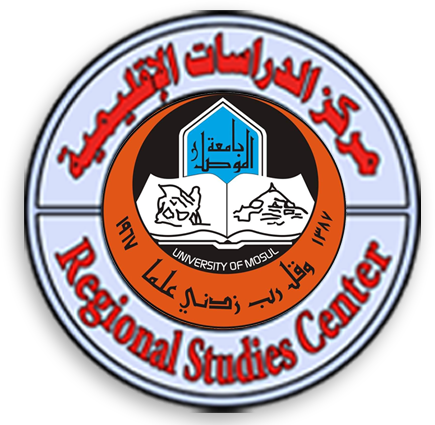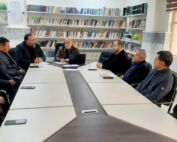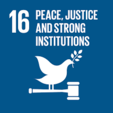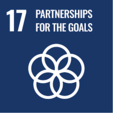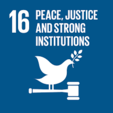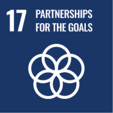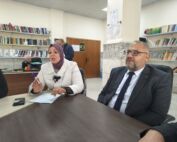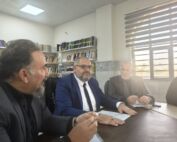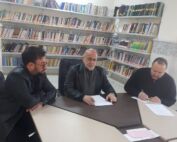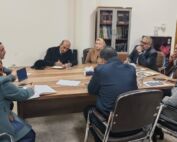21 January، 2025
A Scientific Symposium at the University of Mosul Discusses the Challenges and Future Prospects of Syria after Assad Regime

Under the patronage of the President of the University of Mosul, Prof. Dr. Waheed Mahmood Al-Ibrahimi, and under the supervision of the Dean of the Faculty of Political Science, Assist. Prof. Dr. Tariq Mohammad Tayeb Al-Qassar, The Regional Studies Center/Continuing Education Unit, in cooperation with the Presidency of the Mosul University/Studies and Planning Department/Sustainable Development Unit, organized a scientific seminar entitled “Syria after the Assad Regime: Challenges and Futures” on Monday, January 20, 2025: on Monday, January 20, 2025.
The symposium was opened by Assist. Prof. Dr. Tariq Mohammad Tayeb Al-Qassar with an introductory lecture on the political and economic dimensions of the Syrian crisis. The program included several working papers, most notably a lecture by Prof. Dr. Mithaq Khairallah Jalloud on “The Challenges of Forming a New Political System in Syria after the Fall of Assad”.
The symposium included several topics, such as Syria after the change between international expectations and regional polarizations, Iraqi options to deal with the Syrian political transformations, and the Syrian dilemma: The reality and prospects, the Arab security system and the future of the situation in Syria, the protection of foreign civilians in armed conflicts, and the transformation of political thought in Syria: An analytical study of the impact of recent events on political and social discourse, Turkey’s policy towards Syria after the fall of Assad, the crisis of national identity in Syria after 2024, the crisis of the new government in Syria between terrorist precedents and international recognition, the challenges facing societal stability in Syria after December 8, 2024, peacebuilding mechanisms in post-Assad Syria, and the dimensions of Syrian openness to the Gulf after the new change.
The symposium witnessed scientific interventions and discussions that enriched its topic and opened horizons for understanding the future challenges that Syria may face in the post-Assad era.
